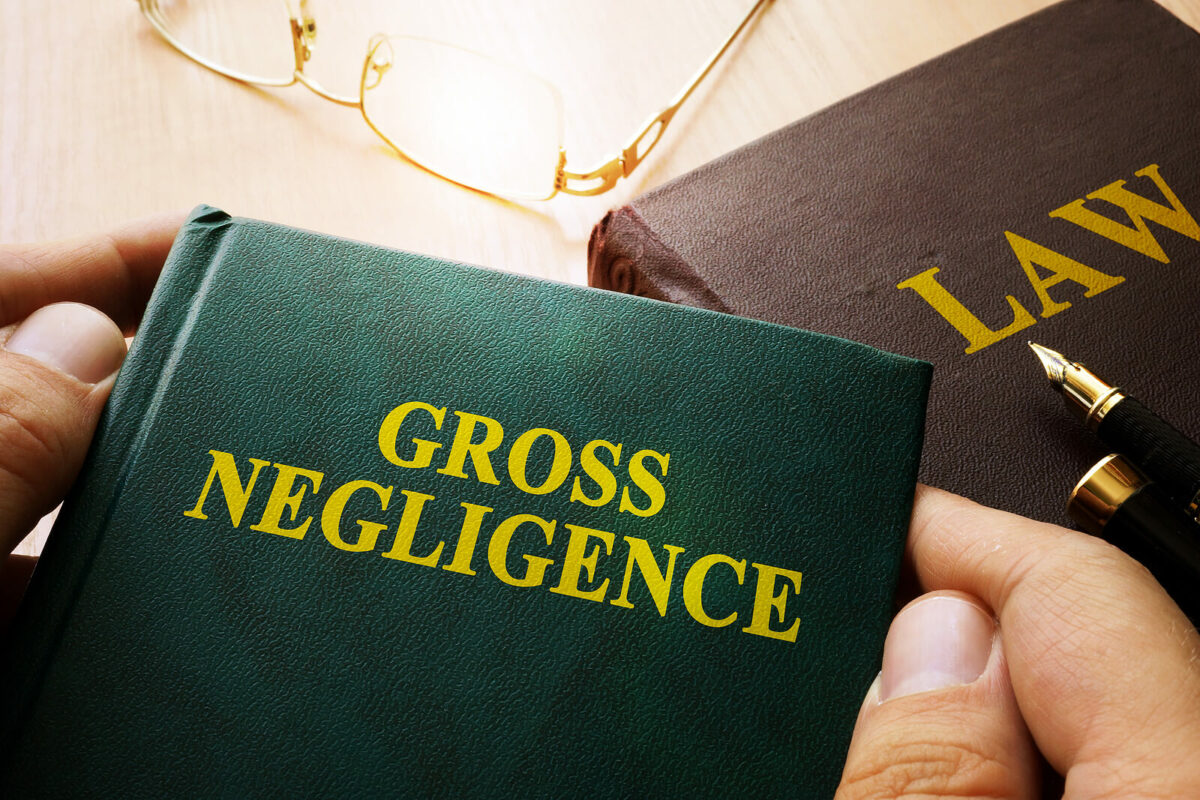Two common terms in personal injury claims are “ordinary negligence” and “gross negligence”. In general, negligence is a lack of care and caution someone would use in circumstances similar to those surrounding an accident. A mistake or lack of attentiveness constitutes ordinary negligence.
However, gross negligence refers to careless acts that disregard the safety or life of another person. These actions represent a conscious violation of a person’s rights to safety in the environment in which they were harmed.
Examples of Gross Negligence
While a driver running a stop sign can cause a crash, one who speeds where there are numerous pedestrians is more likely to be accused of being reckless or causing intentional harm. Failing to put up a warning sign after mopping the floor of a shop can cause injury, but the potential outcome is typically unintentional. As is not replacing damaged steps on a porch; a collapse can cause significant harm to guests, but the property owner didn’t likely want to hurt anyone.
However, negligence may be considered intentional in cases such as a doctor prescribing a drug to someone who is known to be allergic to it or a substance it contains. A nursing home staffer who deprives a resident of food or water may be accused of intentional harm as well. Generally, this level of negligence is considered more than simple carelessness or forgetfulness; it’s also not quite an intentionally evil act, but depending on the case, could come close to it.
Consequences of Gross Negligence
A defendant could face more severe penalty if they intentionally caused harm to another human being. They may face punitive damages. Overall, the damages awarded to the injured party can increase significantly. A judge or jury can possibly award these punitive damages on top of general and special damages in a personal injury case.
How to Build Your Gross Negligence Claim
Contact your attorney as soon as you can if you believe the at-fault person/entity engaged in a reckless and/or intentional act of harm. Your best bet is to work with a personal injury lawyer. Not only can they review the facts of the case to determine who was at fault. They can also represent you when fighting insurance companies and provide a ballpark estimate of what your case is worth.
Time is limited to file a personal injury lawsuit. That’s why it’s important to hire a lawyer as soon as possible. If you miss a statute of limitations deadline, the court may deny your claim or refuse to hear anything you have to say about it.
Assuming your case proceeds as required by law, proving negligence is one of the most important steps. To prove that a party was intentionally negligent, you must show they owed a legal duty to protect you from harm, breached that duty, and injury was directly caused by their actions or inaction. Lastly, you must prove you were harmed by a course of events that were under the defendant’s control. These points are what your attorney will look at to determine the amount and type of compensation to pursue, such as lost wages, medical bills, property damage, etc.
Call The Law Offices of Jacob Emrani
If you or a loved one has been injured in an accident, and believe gross negligence is involved, contact The Law Offices of Jacob Emrani. Our Los Angeles personal injury attorney has represented numerous clients and has awarded hundreds of millions of dollars in damages. To schedule a free case evaluation and get started on your claim, call us at 888-952-2952 today!



